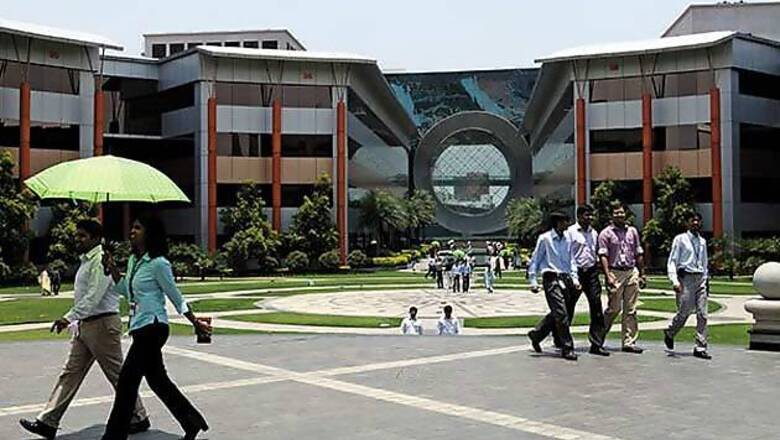
views
As you drive on the flyover to the sprawling Electronic City from Bangalore, you can't miss the shiny, glass buildings on the Infosys campus. One is a pyramid, another looks like the bow of a ship and yet another has a big hole right in the middle.
What lies inside this building, which goes by the number 44, holds a key to the future of the 32-year-old software company. Inside, Infosys Experience Centre showcases a range of new products that its engineers developed in the last few years, some of them a direct outcome of its Infosys 3.0 strategy.
One application helps Infosys clients reduce incoming calls by nudging end users to solve problems without having to reach out to a contact centre. Its algorithms use unstructured data (from Facebook, for example) to figure it all out. Another app lets a client (say a bank, which is squeamish about telling a third party what it plans to do with its customers, and yet is interested in emerging technologies such as social, mobile and big data) build its own big data application using algorithms in Infosys's library. It's as easy as dragging and dropping the databases you want, the visual tools you want to use.
Inside the building, engineers trade jargon like Hadoop and NLP as they walk around. One can feel the raw energy of a well-funded startup. It is a feeling one associated with Infosys 10 years ago, when it seemed it couldn't take a single misstep, and journalists mobbed around the top management to ask them questions on... how to run the world.
Today, the questions are different: They are based on a suspicion that perhaps the top guys don't know how to run Infosys.
While its peers are sprinting, Infosys seems to be limping. Its revenue growth is slower than the industry (which means it is losing market share); its operating profit is dropping too. It has let Cognizant-a company founded 13 years after Infosys-run past it. Once known for consistently beating its own estimates and market expectations, it missed its revenue guidance a number of times before deciding to temporarily stop giving guidance. The market has beaten down its stock.
This sense of gloom is in stark contrast to the scene inside Building 44. And here's the interesting part-the polar opposites emerged out of a single seed: Infosys 3.0. The same strategy that is cementing the future of Infosys is in a way leading to its poor performance today.
Agreed, this is not the most popular explanation for the company's woes. The prevalent reasons revolve around its leadership or its aggression or its portfolio mix. There's a bit of truth in all these, but none of them explain why these weaknesses should matter so much to Infosys.
Take leadership. No other IT CEO among the top five companies has been as pilloried by stakeholders as SD Shibulal. (In the company's recent annual strategy meet in Mysore, he had to face tough questions from founder NR Narayana Murthy.) According to Glassdoor, a website that lets employees vote on their CEOs anonymously, Shibulal has the lowest approval rating among his peers-51 per cent (N Chandrasekaran of TCS has a rating of 88 per cent, Cognizant's Francisco D'Souza 92 per cent, Wipro's TK Kurien 78 per cent, HCL Tech's Anant Gupta 68 per cent). Critics say Shibulal is an operations man-without marketing background and lacking vision.
However, studies show that employee ratings are often biased by company performance, and a company's performance is determined by the strategic decisions taken in the past. No one expected Shibulal to infuse new vision into Infosys. He was there to execute a strategy conceptualised when Kris Gopalakrishnan was the CEO. And, by all accounts, he was the right man for that job. "Shibu is one of the most determined people I have met. If he starts something, he will finish it," Subhash Dhar, then the head of sales and marketing, told my colleague Mitu Jayashankar when Shibulal took charge.
Consider the second reason: Lack of aggression. So much was made of Infosys's reluctance to make a big acquisition that when it acquired Lodestone last year, there was a sense of triumph among its leaders. ("I don't think 'Infosys' and 'conservative' should be used in the same sentence anymore," said Shibulal.) But the growth in other companies was not driven primarily by acquisitions. In 2008, HCL Technologies acquired British SAP consulting firm Axon, but its own growth was driven by infrastructure management. Cognizant makes only tuck-under acquisitions, good to open doors, but too small to drive growth straightaway. In a note to its clients, JP Morgan pointed out that TCS has not made a single worthwhile acquisition since Citi's BPO arm in 2008; and in any case, its growth was driven not just by BPO.


















Comments
0 comment